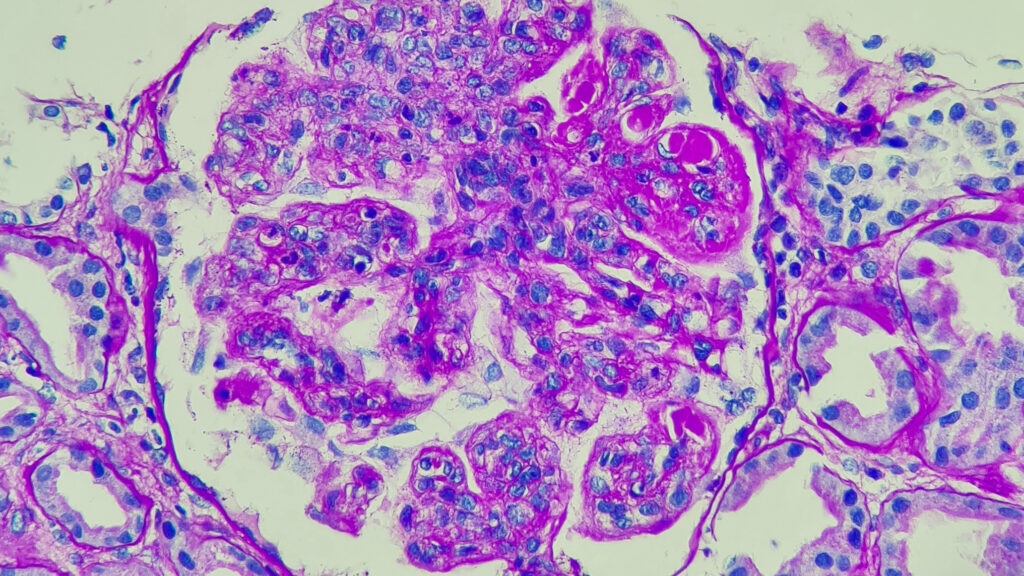Lupus is a disease long-plagued by failed clinical trials. And hopeful patients, many of them young women of color, are waiting — just three lupus drugs have been approved by the Food and Drug Administration in six decades. A key partnership is looking to change that.
On Wednesday, the nonprofit Lupus Research Alliance announced it was entering into a public-private partnership with the FDA. Together, they created what lupus advocates hope will be an engine for innovation: the Lupus Accelerating Breakthroughs Consortium, or Lupus ABC.
The program will bring together lupus patients, clinicians, researchers, federal agencies, and other groups to figure out what’s standing in the way of new therapies, and how to overcome those hurdles. First, Lupus ABC will analyze the measurement tools that are currently used to determine a drug’s efficacy.
The Centers for Disease Control and Prevention estimates about 200,000 adults in the United States have common lupus, called systemic lupus erythematosus. Researchers suspect lupus is driven by both genetic and environmental factors, but there’s no agreed-upon cause, which makes lupus difficult to study and treat.
There are over 40 lupus drugs in the works, but there’s a long history of failure. “It’s increasingly clear that one of the major hurdles is that the way we enrolled patients in trials and how we measure outcomes needs to change,” said Gary Koretzky, a professor of medicine at Weill Cornell Medicine and co-chair of Lupus ABC Research Committee.
More than 100 autoantibodies, self-inflicted triggers of inflammation, have been identified in lupus patients. Researchers suspect there are various forms of lupus, and trying a one-size-fits-all approach might be a reason therapies often fail.
While researchers are investigating ways to stratify patients into different groups — which, if done right, could improve trial success rates — “there isn’t, currently, an accepted overall approach,” said Teodora Staeva, the group’s coordinating lead to the FDA. Lupus ABC’s effort will be to understand what research is happening, and find ways to accelerate it, either by funding more research or by pulling groups together that are working independently on similar questions.
Koretzky will lead the research committee with Nikolay Delev, a rheumatologist who works in clinical development for Bristol Myers Squibb. Five of the research committee’s 19 members are from biotech and biopharma companies, including Biogen, Eli Lilly, EMD Serono, and GSK.
Lupus ABC says it will also focus on incorporating more patient-reported outcomes into the drug development process, mainly through its patient-led “Voices” committee. Specific goals and projects will be determined in coming months, after the group’s first meeting with the FDA in April, the leaders said Wednesday in a news conference.
“I think this is an investment,” said Albert T. Roy, president and CEO of the Lupus Research Alliance. “We’re fairly confident this investment will lead to the results we want.”
As of Wednesday, 20 groups, pharmaceutical companies, federal agencies, and foundations were sponsoring the consortium.
STAT’s coverage of chronic health issues is supported by a grant from Bloomberg Philanthropies. Our financial supporters are not involved in any decisions about our journalism.


